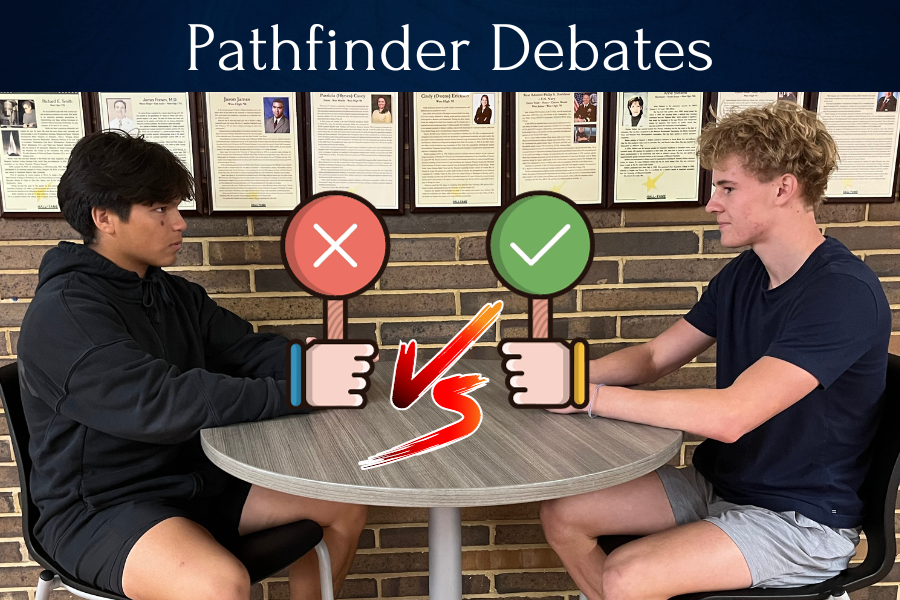Welcome to “Game On!” a podcast about video games and esports. In this episode, I interview Jack Blahnik, Esports Graduate Assistant at Illinois State University. We explore topics such as Blahnick’s relationship to the esports environment at Illinois State, his opinion on the current state of esports at Parkway West High School and how teens who play video games could be up for the opportunity for tens of thousands of dollars worth of academic scholarships. We also explore how playing esports in the academic environment can be an escape for teens who are often left behind due to not wanting or not being able to participate in the athletics program, as well as how playing video games in school can improve teens’ cognitive abilities and provide a safe, encouraging environment that can foster friendships.
Transcript
Zach Solomon: Hi. Welcome to “Game On!” This is a podcast about eSports and video games in general. First, I’d like to introduce Jack “Redfox” Blahnik. He is the eSports graduate assistant at Illinois State University and is the co-founder of Just eSports. I have interviewed him on the topic of eSports in school and how it can affect children and how it can lead to good outcomes and scholarship opportunities.
What is your relationship to the eSports program at Illinois State?
Jack Blahnik: Yep, so I currently serve as the eSports graduate assistant for Campus Recreation, which is where our eSports program is housed out of.
Solomon: How has eSports impacted your life at your job or your life as a whole?
Blahnik: I would say pretty substantially. I came to Illinois State in 2016 and ultimately joined the club. At the time, we had a gaming club here on campus and loved it. I took a leadership role within the club and ultimately was a part of the team that helped bring varsity eSports to ISU (Illinois State University).
At the time, I really only considered it a passion of mine, was one of those things you did to stay involved and get engaged within the university ecosystem. In fall of 2019, I was getting ready to graduate a semester early when I was starting to think about ‘well, what does that mean for me? What am I going to do? How am I going to enter the workforce?’ And at that time, we had finally achieved varsity status where Illinois State University recognized eSports as something that they would institutionally support. I decided if I wanted to stick around, there would be an opportunity for me possibly to stick around if I wanted to.
So I did some soul searching and what really came down for me, the turning point was I didn’t want to look back in 10 years and regret not trying. If there was ever a time for me in my life to do something in eSports gaming, this was it. And I said, ‘alright, I’m gonna go for it.’ So then I spent seven months in an intern capacity, serving as a coordinator until the next fall when I started my graduate studies in Recreational Admin. And for me, I got my degree in criminal justice, not at all related to eSports, at least, you know, on paper when you compare the two, but it was something that I was really passionate about. And we should all be so lucky to be able to do something career-wise that energizes us and gets us up in the morning. And for me, that was it.
Solomon: Currently, we have an eSports club here. So we have a class that’s called Academic Lab, and Academic Lab is like a class for students to catch up on homework or go in, and do an activity that peaks their interest. And one of the activities that you could do is in an eSports club, so currently students play Super Smash Bros and League of Legends during that 45-minute period. If you were to provide our administration advice on creating a team that prepares students for the college gaming community and onward, where should we start?
Blahnik: For starters, you have to get a space. I mean, you all clearly recognize the value of that. There’s something special about playing in person next to people, right, where you can look at them and high five each other or give each other a dirty look. The whole range of emotions, I think is actually really impactful for esport players and really, you know, eSports starts and continues to be heavily online. But there is something unique and special particularly in the scholastic space about being in person. And particularly when we look Pro too, a lot of times they are right, so as a potential pathway to pro through high school, collegiate and amateur routes, we look to model that in some ways, I think this is one of them, having in person practice facilities.
So beyond that, preparing for college and beyond to the root of your question. I think the reality is, not every student will be allowed to earn a scholarship for eSports. And yes, they do exist. But what I tried to tell people it is similar to athletics, not every student is going to earn an athletic scholarship, right to play basketball or football or swimming or tennis or whatever it is, right. They’re not gonna, not everybody can do that. But there are still people that play those sports that are not scholarship, whether through intramurals, clubs-sports, just out in the open community space right there are some people that do that. So for me what’s really important and what we’ve been able to do here in Illinois State is that community building aspect of it, emulating a similar club-sport model and moreover to the root of it, engaging a wide variety of gamers. Not everyone wants to play at a competitive level. Now certainly you should support that, that’s what’s going to be flashy, get all the bling, media and all nine yards right? But there is a large demographic of people that just want to play for fun, and they want to have a place to congregate and meet new people and make friends. So for me, building that system out, I think is really important, not only at high school level, but I mean, obviously at the collegiate level.
But I think at the high school level, too, there’s value in that, yes, we want to be able to recruit highly competitive players for our varsity teams. And we’re going to look to high schools as a, you know, a breeding ground for that. Absolutely. But we’re also looking for people that want to take roles and leadership roles within our community building, right, our clubs and our casual events, our broadcast and production, our events and social media, right, there are other avenues of eSports that extend well beyond just playing but also give weight and priority and care for those that don’t want to play at a highly competitive level. That’s what I would recommend, as it will expand your offerings and possibilities. You’ll get more people engaging in your services if you program and plan for beyond just varsity, beyond just uber-hyper competitive. All of a sudden, you start kind of spider webbing into a bunch of different areas. And that’s where the value is.
Solomon: Are there any schools or any places that you’ve seen that we should replicate build out on basically, on the high school level?
Blahnik: Just existing and knowing in this space, I often see Naperville North.
Solomon: How does being involved in eSports allow for scholarship opportunities? And how does being involved with like everything that comes with it?
Blahnik: Well the thing is, the really great thing about the space, mostly because there’s just less people. So I think it depends on, you know, what you’re looking for, as a student, but I’ll say for starters, you know, obviously having competitive players is one route. Beyond that, you know, other scholarship opportunities, there aren’t a lot, at least right now. Some schools still offer and have scholarship opportunities for things like video production, right, having a producer or a graphic designer, we’re seeing that one to come up a lot more right to help with social media and marketing for esport programs. Those are probably the two biggest ones that I’ve seen, student coaches too, that’s something we do here is we have student coaches on scholarship. To folks interested in development, we’re all you know, there’s avenues there, but for me, the biggest one, in order to earn a scholarship are obviously player but then also on the sport side of broadcast production and social media marketing.
Solomon: According to the National School Board Association, participating in eSports in high school and other schools, as well as any like social events can help students thrive, like academically and socially, and skills like cooperation, teamwork, and dedication, which are all in regular sports can be also found in competitive gaming. In some examples, students who join the eSports program have better attendance at school, earn better grades, and it can also increase their engagement with peers, and which could also reach students who may have been left behind. What do you think gaming in school encourages to students who participated? And what does it allow them to do?
Blahnik: One thing we often say around here is an engaged student will stay engaged, right, and which gets to the root of what you’re saying. I think this is true for a lot of people. When you first come to college, or really even high school, I would argue, you know, oftentimes you try to figure out who you are and what you want to do in life, particularly at that age, thinking about transitioning into adulthood, right? It’s often a time of uncertainty and experimenting and figuring out what you like and what you don’t like. Right? So I think, for so long, folks that played video games, it was a stigma associated with it, right? You almost had to kind of hide behind, and it wasn’t something that you would openly admit that you do, now that we’re seeing it become more acceptable, socially acceptable. I think it’s proving the points that you just said, right, that it’s true to all people, not just athletics. Right? If you give love and support to any community, they will respond in kind. So, you know, finding a community to play games and to chat with people about Mario Kart. Maybe you love playing Mario Kart, right, whatever it is, having a space to do that and engage in that. Why wouldn’t you return? Like that’s basic human nature.
Solomon: So I researched that a Wisconsin High School eSports League, they were saying that the competitive gaming allows students to become part of a team, learn from educating with each other, as well as bond over shared interest. How do you think like a socially aspect like that could affect, so even though you’re going back to the club, you’re going to go see everyone. How do you think outside of the club, it can affect students or outside of the program it can affect students?
Blahnik: I think you build friendships and relationships with people, right. So like, well, I might play with Timmy on Mario Kart every Friday night, right? We might now hang out Saturday, we might go get food together, might go see a show or whatever, go to a sporting event. Whatever it is, I think that’s where you know, the value is in having an eSports program. Just like any activity really, you connect over and bond over a common interest. And oftentimes that blossoms into a real friendship. And that’s part of the challenge, particularly for introverts, which we know a lot of gamers are inherently introverted, right? It can be challenging to meet new people and to put yourself out there as it were. And I think this allows folks to do that in a way that’s comfortable for them. You can get all nerdy, right, and talk about something you’re interested in. And there’s someone else that also cares about that and wants to dig into the weeds about the inter, you know, minutiae of how to play League of Legends, they want to do that too, right? Or whatever game. And there is something special about that. You don’t have to hide behind it. You don’t have to beat around the bush and say, “yeah, I play games.” Grumble grumble, right, like you can actually talk about because it’s something you enjoy, something you like. And I think, you know, that, for me is how it manifests itself, which for us, at least here in Illinois State, that was the whole reason why we want to start a program.
You know, yeah, we want to be able to compete nationally, varsity win some trophies and look good doing it, which I think we’re doing. But the real reason for that, starting a program was that aspect of community building, having a place where students could connect, and be themselves be their true selves. We have a slogan here called State Your Passion. And that’s it. I love eSports and gaming, and I want to get involved with it, boom, come to our eSports program, right. So I think any place that can do that will see benefits will extend well beyond the main purpose of the organization existing.
Solomon: I did some research about how like playing video games has improved people’s cognitive functions, and overall, like motor functions and perception. Do you have anything else to add?
Blahnik: What I will say this, that a healthy gamer is a productive gamer. However, I’ll caveat that with, you know, it’s still early in the stages, right, of research, mostly because there’s typically a couple of years delay when research can be published. But we’re starting to see a lot more. And more and more people are doing research on the implications of diet and exercise and sleep, etc, on playing video games and being an eSports athlete in particular. And while kind of inherently we all tend to kind of collectively agree that yes you should be healthy and you know there are good reasons for eating right and sleeping well, I think we’ll see more data coming out that supports that in the future. I think right now, it’s sort of anecdotally and kind of socially understood. But I’ve also seen high performing esport players that are not that. And I’ve seen that from firsthand experience. We have folks here that are not healthy. And we’ve done specific things to help them with that.
Because again, it’s what you should do, right? You should be a healthy gamer, because then you’ll be a better player, right? I mean, duh. But is it duh? Do you need to? Or could you be overweight and still be a successful gamer? Could you get five hours of sleep and still be a successful gamer? I would argue sleep probably not because there’s been enough sleep research to know that everyone needs sleep. But the dexterity in your fingers and you know, I think just naturally yes. If your brain is awake and alert and you’re feeling good and refreshed, yes, you’re naturally going to play better. But I would say that about all things in life, right? I can’t think of any activity I would do worse, I would do well in if I’m feeling bad. I would just say that I would defer to any research but that yes, inherently if you exercise and be healthy, and sleep well and take care of yourself, then you’re going to see benefits in the eSports realm if you will.
Solomon: Thank you for listening to “Game On!” This was a podcast made by me for my journalism choice project number one. I hope to create more of these in the future for all of the listeners who are listening right now to enjoy again, thank you and have a good day.


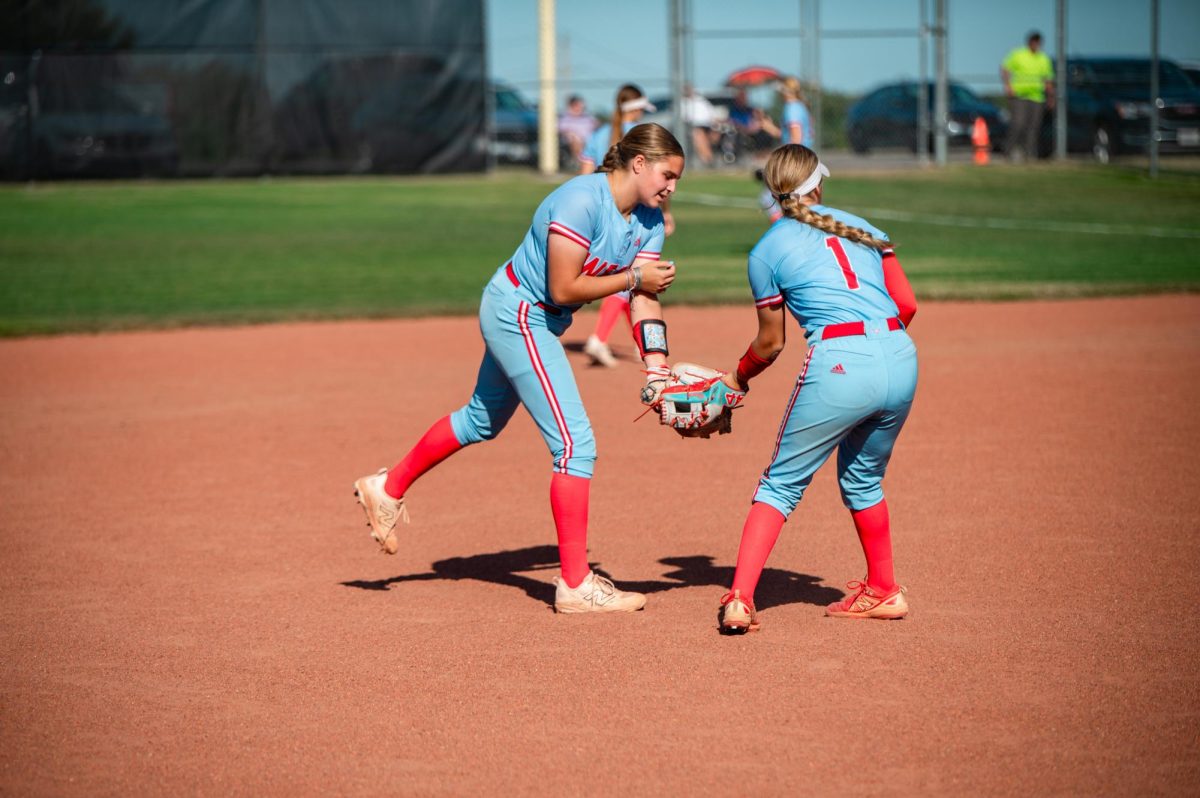
![Standing in front of the camera and next to Fox 2 News' Ty Hawkins, senior and varsity football player JaMont Brooks represents the varsity football team. As captain and outside linebacker, Brooks was one of four students selected to be interviewed live for the broadcast. “Overall, it was just a crazy experience being on the news. Even when I get older, I’ll tell my kids or grandkids I was on the news. My mom sent me a picture of me on the news [saying] ‘Oh my gosh, that’s my son.’ The Parkway West community felt amazing this morning. Everybody showed up at 6 [a.m.] and [will] show up 6 [p.m.] tonight too. Any time I go into a game, I go up there with the mentality that we’re going to try our best, and even the times we struggle, [I’ll] keep my head up,” Brooks said.](https://pwestpathfinder.com/wp-content/uploads/2025/10/DSC8122-Enhanced-NR-1200x799.jpg)
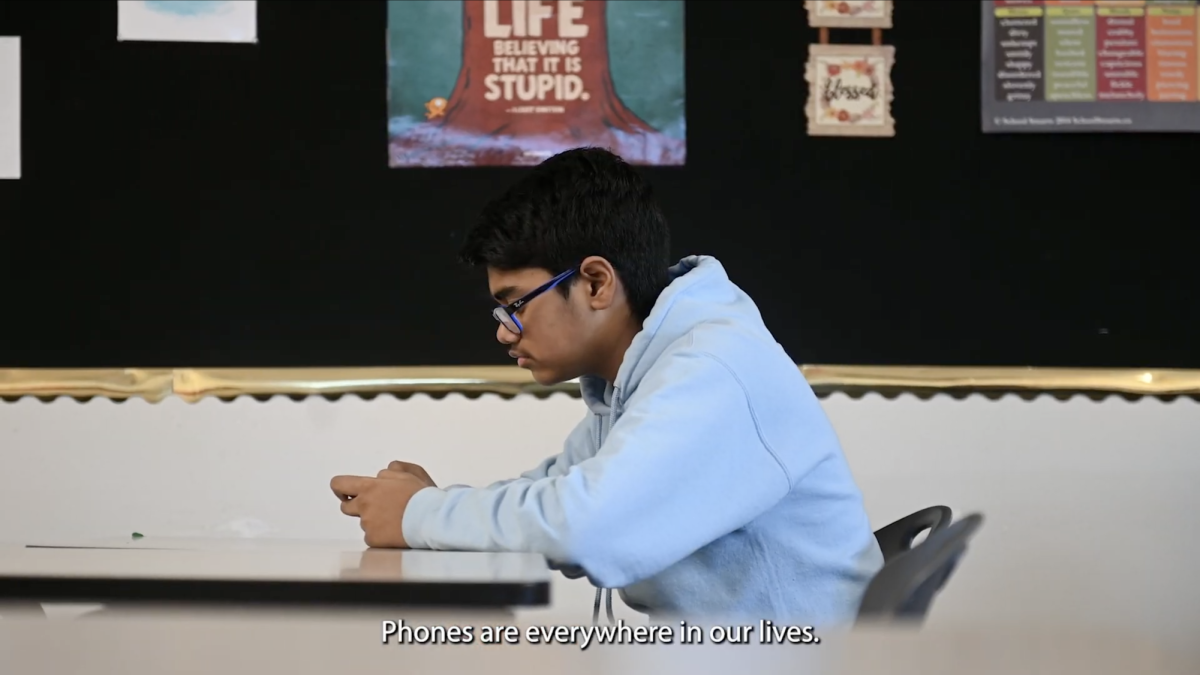
![Blue lights shining brightly, senior Riley Creely beatboxes into the microphone. Creely and the group began the performance in front of the blue lights, sparking interest from the audience. “The pep rally performance was fun. I got to beatbox for the first half of the song, which was hype. I liked to look into the student section [while I performed],” Creely said.](https://pwestpathfinder.com/wp-content/uploads/2025/09/DSC_5085-Enhanced-NR-1200x799.jpg)

![Leaping through the air, senior Tyler Watts celebrates his first goal of the season, which put the Longhorns up 1-0 against the Lafayette Lancers. Watts decided to play soccer for West for his last year of high school and secured a spot on the varsity roster. “[Playing soccer for West] is something I had always dreamed of, but hadn’t really had a good opportunity to do until now. It’s [really] fun being out [on the field], and I’m glad I decided to join the team. It’s just all about having fun with the boys and enjoying what time we have left together,” Watts said.](https://pwestpathfinder.com/wp-content/uploads/2025/09/DSC_1951-1200x855.jpg)
![Sophomore Natalie House pitches the ball during an intrasquad scrimmage for Red and Blue Night on Aug. 22. House played catcher for the varsity softball team. “I started [playing] softball when I was five. My brother played baseball, and I wanted to start sports like him. Scrimmaging against our own team is always kind of difficult because we all know each other's [weaknesses],” House said.](https://pwestpathfinder.com/wp-content/uploads/2025/09/DSC7191-1-1-1200x844.jpg)
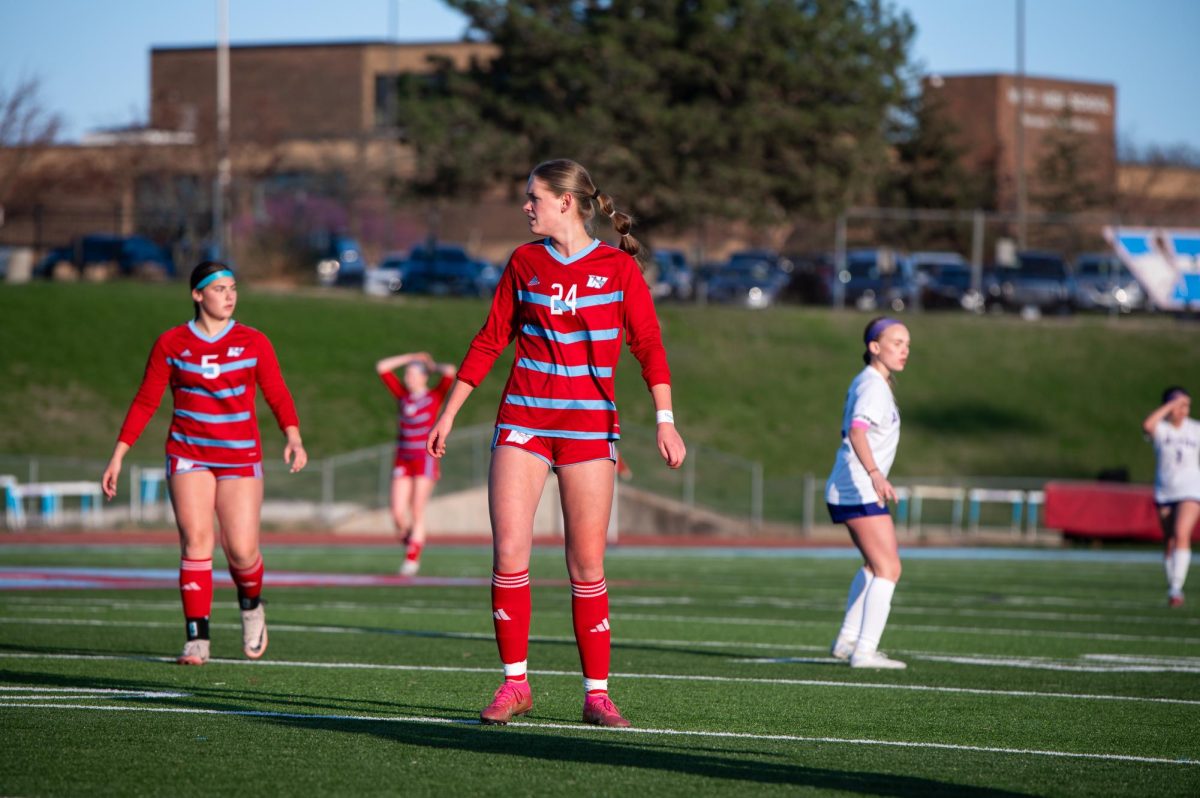
![Blending harmonies with dynamic control, senior Spencer Rahm takes the stage as part of the jazz choir's spring performance. Jazz Coffee House took place on April 22, marking the culmination of months of preparation by West High’s musicians. “To me, [choir] is an opportunity every day to get to sing with my friends and work on our songs that we have concerts for. [Seeing] the results after working together with people is really rewarding. Jazz Coffee House concert was a reflection and a result of all the hard work we've put in the last three months,” Rahm said.](https://pwestpathfinder.com/wp-content/uploads/2025/05/DSC_0214-3-1200x800.jpg)
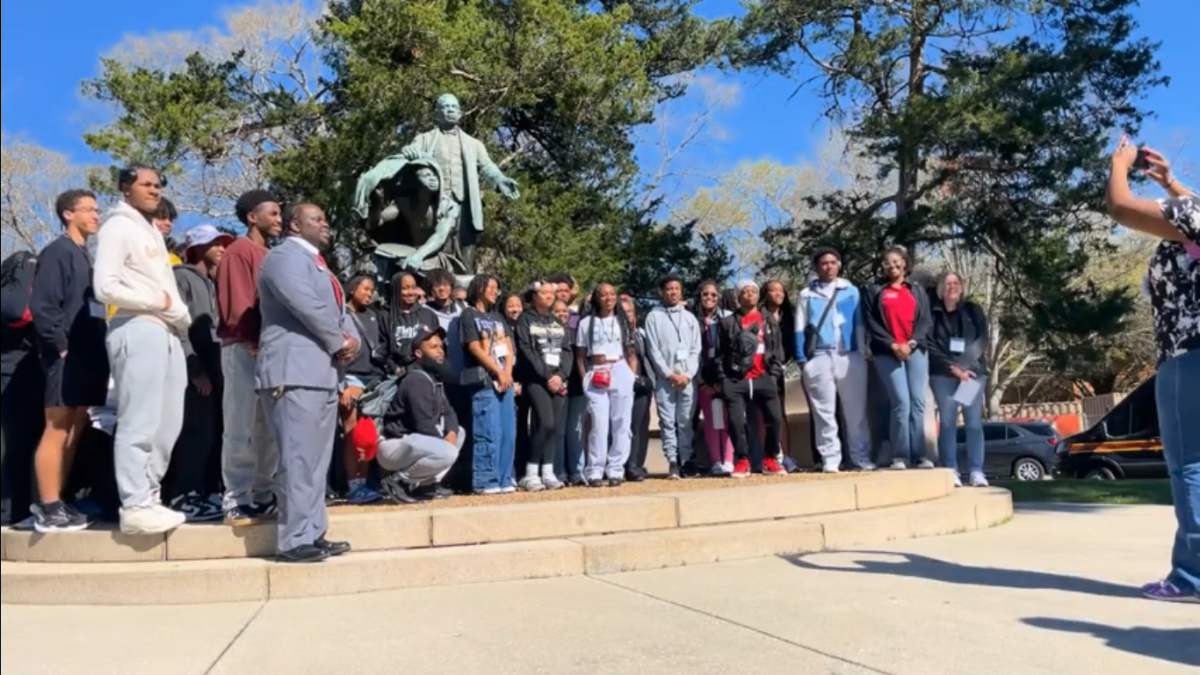

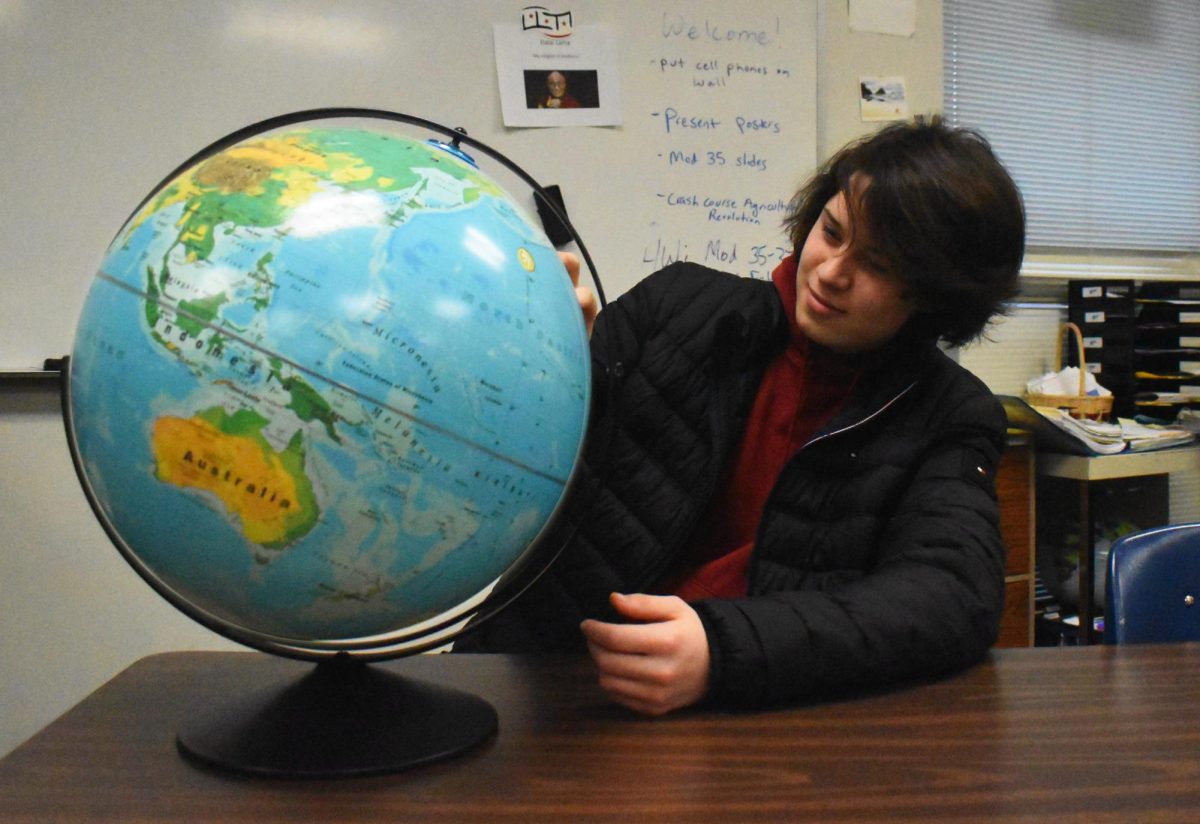


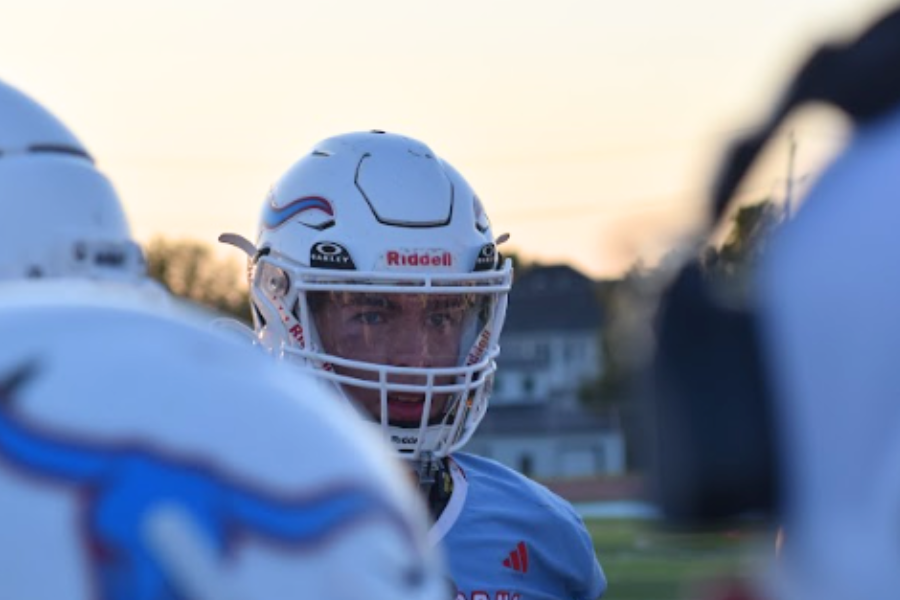


![In perfect shooting form and with eyes on the rim, junior Tyler Kuehl is about to shoot his next basket in the last game of the season against Marquette High School. Kuehl has been playing basketball since he was 5. “Even though I played basketball all my life, the game-winning shots can be pressure, it's confidence. If you're going into that shot and not thinking that you're gonna make it, it's obviously not going in. And if you believe, [it will]. That's the only way you can succeed,” Kuehl said.](https://pwestpathfinder.com/wp-content/uploads/2024/01/unnamed-32-1-1200x1200.png)

